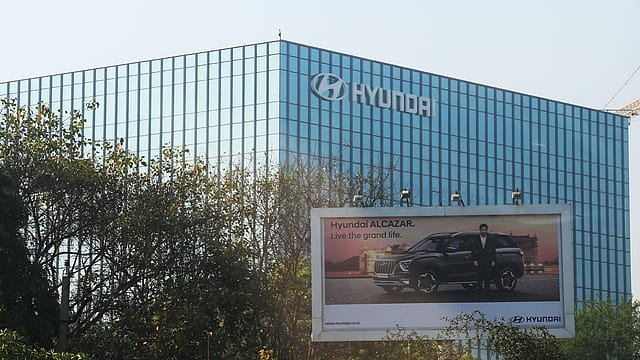Hyundai calls CAFE penalty report 'fictional'
ADVERTISEMENT

Newly listed Hyundai Motor India on Friday clarified that a newspaper report which claimed that the South Korean carmaker faces a penalty of ₹2,800 crore for allegedly violating Corporate Average Fuel Efficiency norms in the financial year 2022-23 is "fictional".
In a regulatory filing, Hyundai said the article is based on extrapolations, which exercise itself is based on the incorrect premise that the 2022 amendments to the Energy Conservation Act, 2001 (“EC Act”), prescribing stricter penalty norms compared to the preceding law, were effective prior to January 1, 2023. “Therefore, the story of penalty or the quantum of penalty is more fictional than based on facts or laws applicable to facts,” the automaker says.
Hyundai says it has not received any formal or informal information or intimation regarding any penalty and has not heard of, formally or informally, the quantum mentioned in the said article. “The company categorically denies the contents of the news article mentioned against its name,” it says.
CAFE or Corporate Average Fuel Economy norms aim to reduce fuel consumption by vehicles (or improve fuel efficiency) by lowering carbon dioxide (CO2) emissions. In phase 1 (2017-2022), CAFE norms required average corporate CO2 emissions to be less than 130 g/km by fiscal 2022 and below 113 g/km thereafter (CAFE II). CAFE II norms came into effect on April 1, 2023. The Energy Conservation Bill requires carmakers to pay ₹25,000 per unit if their fleet’s CO2 emissions exceed the intended CAFE score of 0-4.7 g/km, and ₹50,000 per unit if they exceed by more than 4.7g/km.
In its red herring prospectus filed before the IPO recently, Hyundai said it is in compliance with the CAFE norms. “For the financial year 2024-2025, based on the projected sales volume and mix, as on the reporting date, management has confirmed that the Group would be in compliance with CAFE and accordingly they do not expect any material impact on the financial position for the period ended June 30, 2024.”
The South Korean automaker is expected to launch the Creta EV in the fourth quarter of the current financial year 2024-25. “We believe that our CRETA EV could be a game changer in the EV segment in the Indian auto industry and we are very excited about its imminent launch,” says Hyundai Motor India Chief Operating Officer Tarun Garg.
Hyundai Motor India introduced the ICE Creta in 2015, when SUV penetration was only 13.5% in the Indian automobile industry. At present, SUVs, contribute 68% of the overall domestic volumes for HMIL, higher than the industry average of 54% for FY25.
Sunroof penetration in HMIL models has gone up to 53% in the first six months of FY25, as against 47.4% in the same period last year. The penetration of Advanced Driver Assistance Systems (ADAS), which HMIL offers in 8 out of 13 models, went up from 3.3% in the first half of FY24 to 14.4% in H1 of FY25. At the same time, penetration of automatic transmissions have gone up from 23.2% in H1 of FY24 to 25.3% of H1 of FY25.